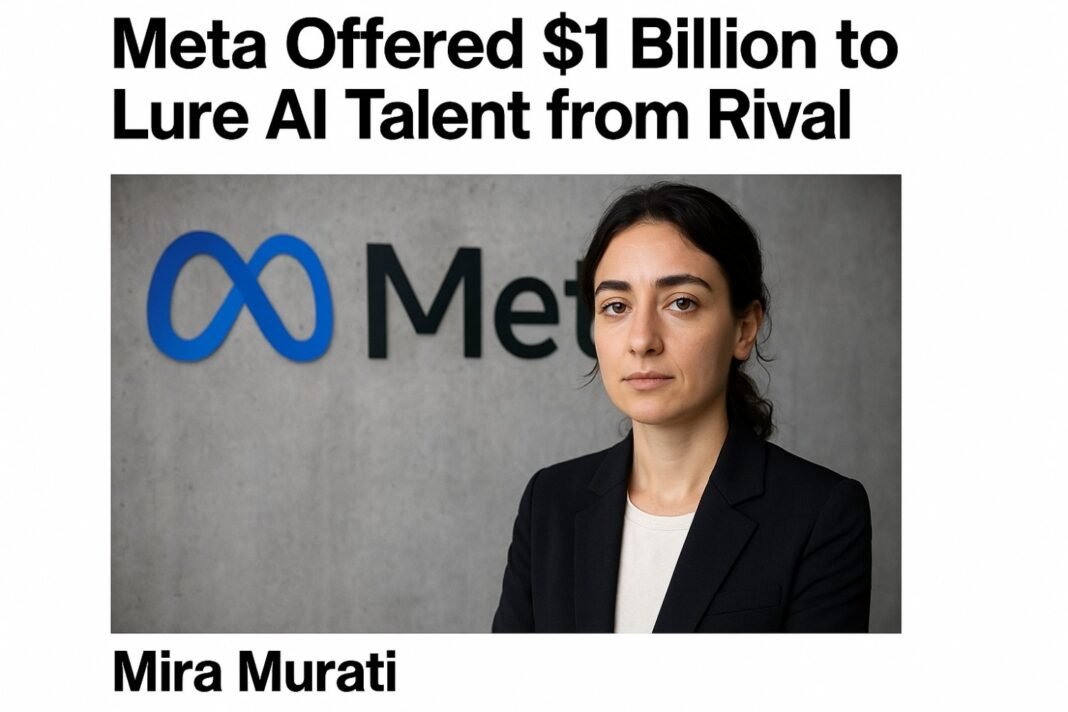Meta Reportedly Tried to Poach Thinking Machines Lab Talent with Massive Offers
As the global race to dominate generative AI accelerates, tech giants are going to unprecedented lengths to secure top talent. A recent WIRED report reveals that Meta, led by Mark Zuckerberg, made billion-dollar overtures to employees at Thinking Machines Lab, an AI startup founded by former OpenAI executive Mira Murati. Despite the staggering sums on the table, not a single employee is said to have accepted the offers.
Meta has been aggressively investing in artificial intelligence over the past year, focusing heavily on building a team for its AI superintelligence division. According to WIRED, Meta’s recruitment efforts included approaching multiple staffers at Thinking Machines Lab (TML) with offers ranging from $200 million to $500 million over four years. One standout offer even approached the $1 billion mark—a number that underscores just how valuable elite AI researchers have become in the current market.
In the first year alone, some of these packages were said to offer between $50 million and $100 million in total compensation. However, all the offers were turned down, according to the report. “So far at Thinking Machines Lab, not a single person has taken the offer,” the outlet quoted from sources familiar with the matter.
Meta Responds to Report, Partially Denies Details
Following the publication of the report, Meta’s communications director Andy Stone responded, acknowledging that offers were indeed made to a select few at TML. However, he disputed the magnitude of the reported compensation packages. “We made offers only to a handful of people at TML and while there was one sizable offer, the details are off,” Stone told WIRED.
While he did not elaborate on which details were inaccurate, the comment suggests that although Meta’s interest in TML’s talent was genuine, the exact financial terms may have been misreported or exaggerated.
Mira Murati’s New Venture Attracts Industry-Wide Attention
Mira Murati, who formerly served as Chief Technology Officer and briefly as interim CEO at OpenAI, founded Thinking Machines Lab in late 2024. Her decision to leave OpenAI and launch her own venture drew widespread attention across the tech industry. At OpenAI, Murati was instrumental in developing key products including ChatGPT, DALL·E, and Sora.
In her new role at TML, Murati has reportedly cultivated a small but highly capable team of AI researchers and engineers. According to a CNBC report, the startup raised a staggering $2 billion in initial funding, positioning it as a serious contender in the AI space. The startup is said to be focused on building safe and scalable artificial general intelligence (AGI), a goal shared by several high-profile labs globally.
AI Hiring Wars Heat Up
Meta’s aggressive recruitment tactics highlight the intensifying competition among major tech firms to lock down the best minds in AI. With companies like OpenAI, Google DeepMind, Anthropic, and xAI in the mix, securing top researchers has become a strategic priority. Salaries and compensation packages for elite AI engineers have ballooned to levels that rival, or even surpass, those of professional athletes and entertainment stars.
While such hiring strategies are not new in Silicon Valley, the scale of Meta’s reported offers is nearly unprecedented. A $1 billion offer would mark one of the largest—if not the largest—individual compensation packages in tech industry history.
The Road Ahead
Thinking Machines Lab’s apparent refusal to budge despite Meta’s lavish offers could signal a cultural or mission-driven focus that money alone cannot shake. As the AI landscape continues to evolve, the battle for talent will likely grow fiercer. Yet, the loyalty displayed by TML’s team suggests that purpose and vision remain powerful forces in an era increasingly defined by high-stakes competition and astronomical compensation.
With Murati at the helm and billions in backing, Thinking Machines Lab appears poised to remain independent—for now—offering a potential counterweight to the dominance of legacy tech giants in the next phase of AI development.







